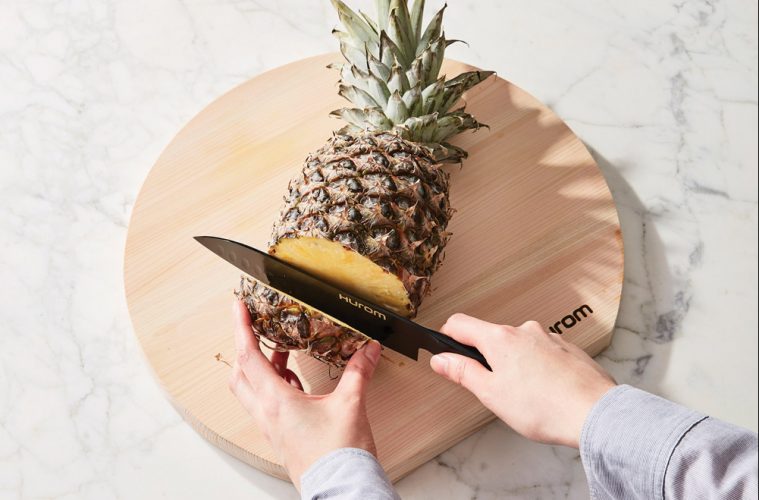I love to cook and do it very often. But as long as my kitchen knives cut, I don’t pay much attention to what brand they are. That’s probably why I’d never heard of Hurom until their new set of vegetarian knives crossed my desk. Or more appropriately, my kitchen island.
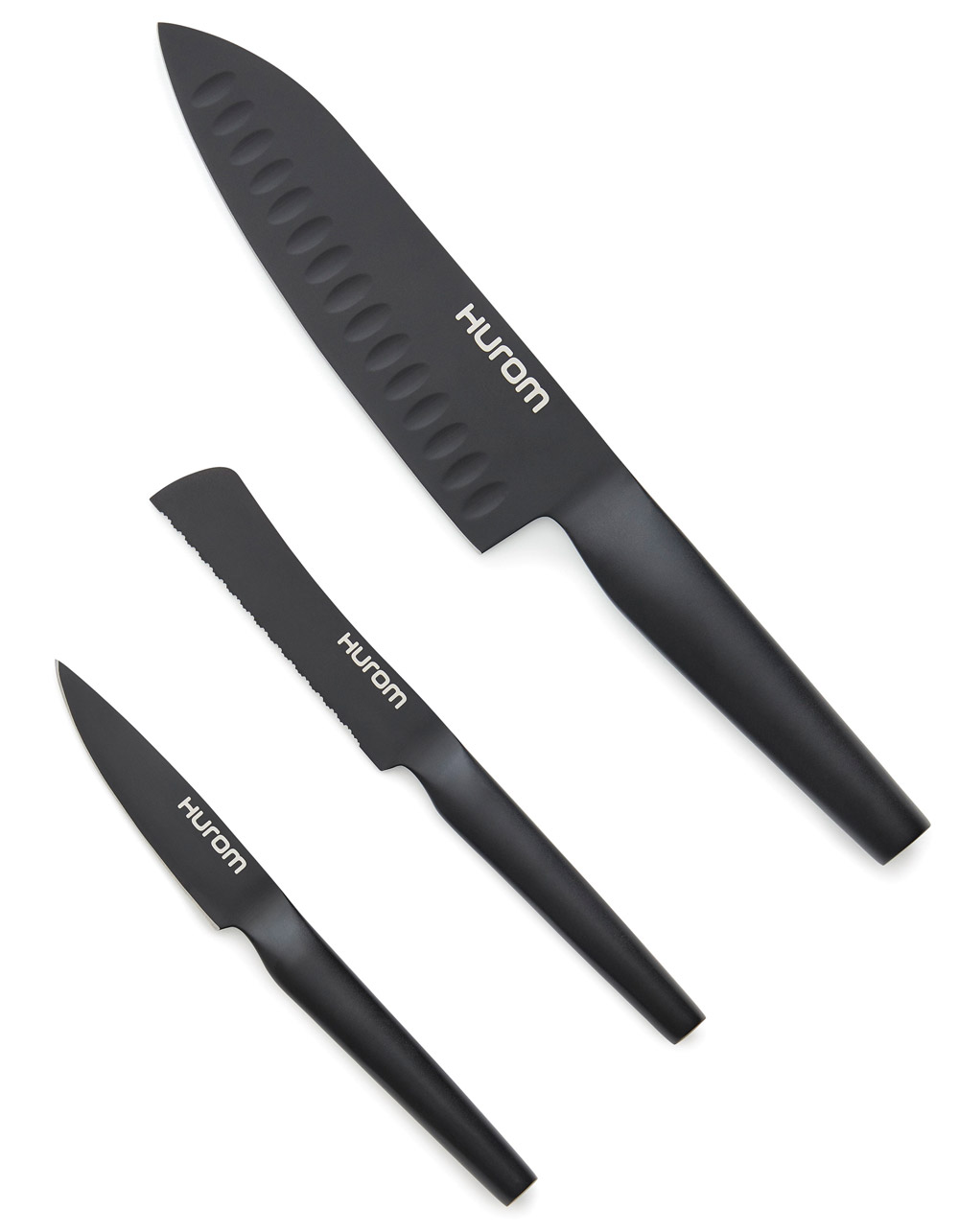
The Hurom Fruit and Vegetable set has a modern look that should suit almost any kitchen.
Hurom was founded in South Korea in 1974 as a kitchen appliance company. Later that decade, they moved primarily into electric food processors. In 2004, they invented the first “Slow Juicer” with their Slow Squeeze Technology (SST). Their well-regarded juicers are now their primary focus.
Therefore, when Hurom decided to introduce their first kitchen knives, it really isn’t much of a surprise that they were a set of three vegetable knives. The Hurom Fruit & Vegetable Knife Set comes with a 7-inch blade Santoku Knife, a 4-inch blade Citrus Knife and a 3.5-inch blade Paring Knife. The entire set goes for $99.
‘Vegetarian Knives’ Are Non-Traditional For Sure
All of the knives are made with “German Steel.” (That’s as specific as they get.) Each are a single piece of metal. No handle scales here. They have a black coating and the overall look is actually pretty cool. A bit non-traditional for sure, but they should look at home in any modern kitchen. The looks actually grew on me more and more as I had them. They are very classy, in a modern sort of way. The knives don’t come with any sheaths or covers to speak of, but that isn’t uncommon on less-expensive kitchen knife sets.
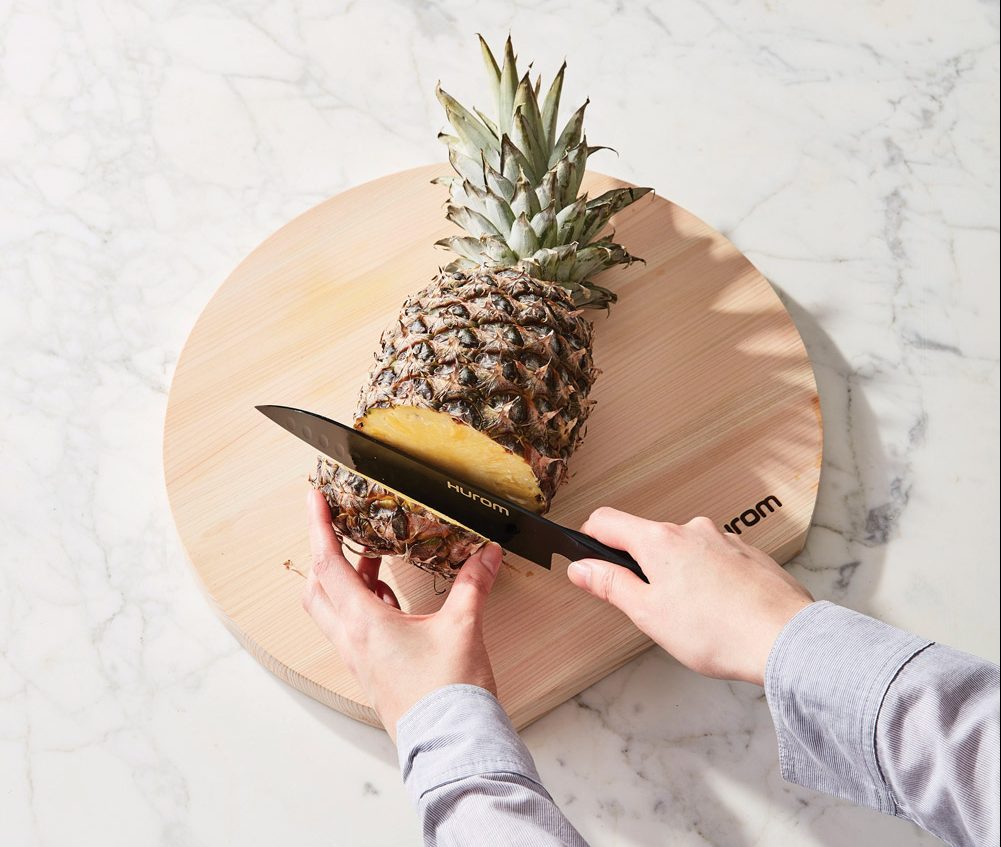
Fruits and veggies, like pineapple, squash or eggplant were easily sliced with the edge out of the box.
Putting Them to Work
There is nothing more annoying than an uncomfortable kitchen knife. Luckily, I found the Hurom knives to all be pretty ergonomic. I have ‘size large glove’ hands, with fairly long and thin fingers, and the knives fit me very well. That said, I prefer a more standard handle with scales. Even with the coating, the Hurom knives got a bit slick with a lot of use. They also are more handle-heavy than I prefer.
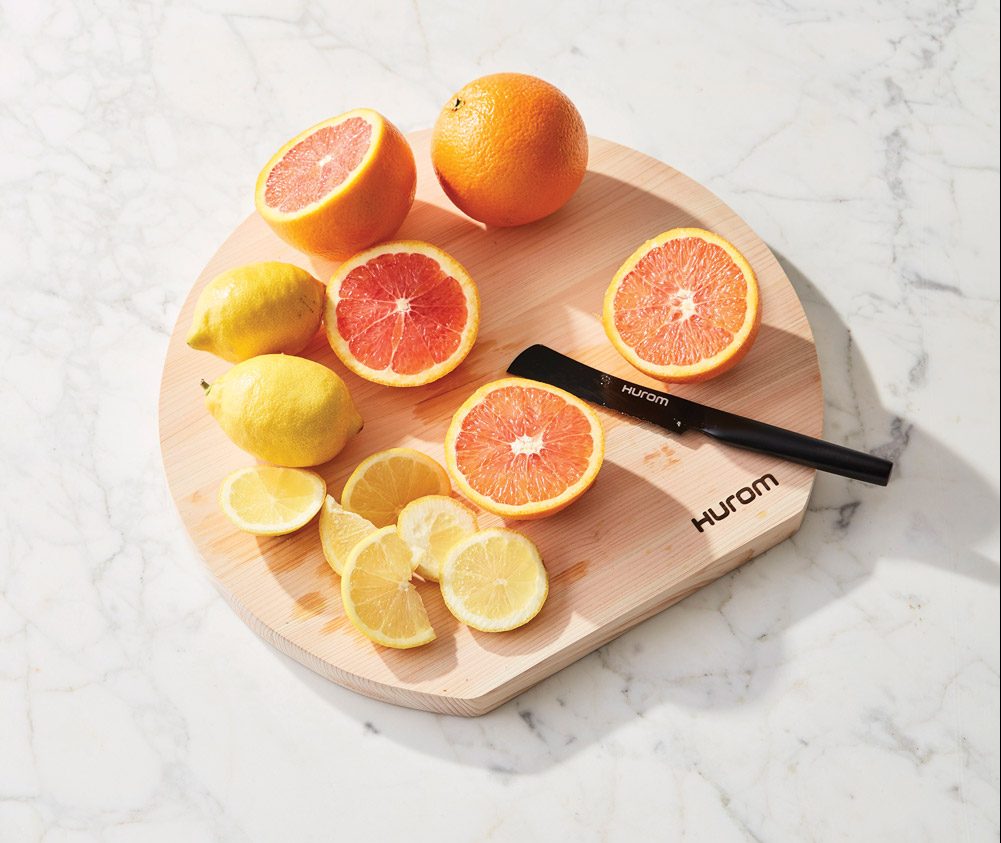
The 4.5-inch Hurom Citrus Knife makes quick work of oranges, lemons and other thicker-skinned fruits and vegetables.
The factory edges that the knives came with were more than acceptable. I would need to use them longer to comment on the edge retention of the German Steel, but it didn’t seem quite as robust as the similarly priced Victorinox or Spyderco kitchen knives I’ve used. I recommend that you have a good steel sharpening rod or a kitchen knife sharpener handy with these.
The 7-Inch Santoku
I put the 7-inch Santoku Knife to use the most by far. The blade shape is handy. It worked well for both larger cuts and your typical rocking motion for finer dicing. The smaller Paring Knife also got a lot of use and may be my favorite of the bunch. The handle and blade shape both gave me a lot of control for finer activities. Like all of these one-piece knives, I appreciated the sturdy feel. In that way, it reminds me of a higher-end fixed blade EDC knife than a kitchen knife. And for a knife guy, that’s a good thing.
The Citrus Knife was also pretty functional. I wasn’t sure what exactly to do with it at first, but when you use it for … well … citrus, it lives up to its name. The serrations were just enough to make very quick work of the tougher skins on my oranges and lemons. It also worked surprisingly well on peppers.
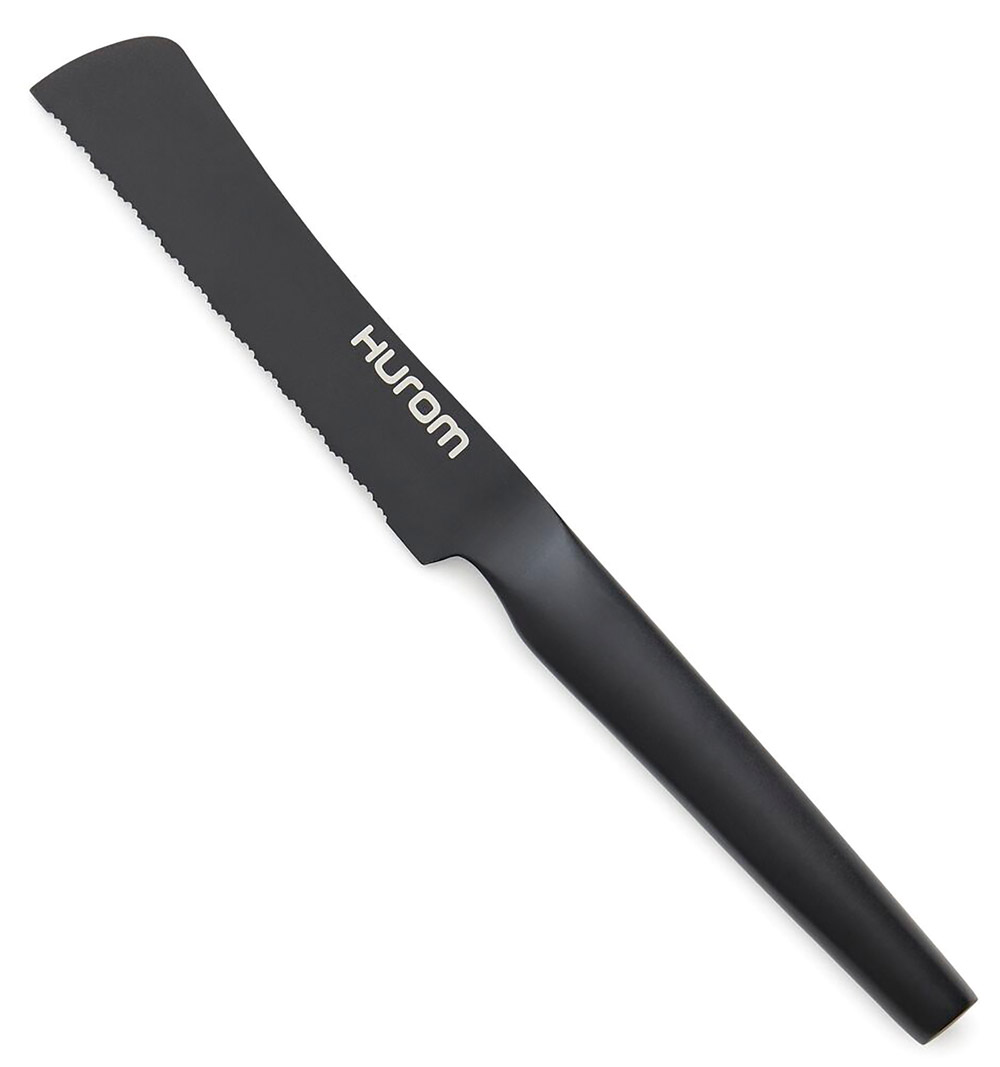
The serrations on the Hurom Citrus Knife sliced through tougher skinned citrus fruits without having to squish them.
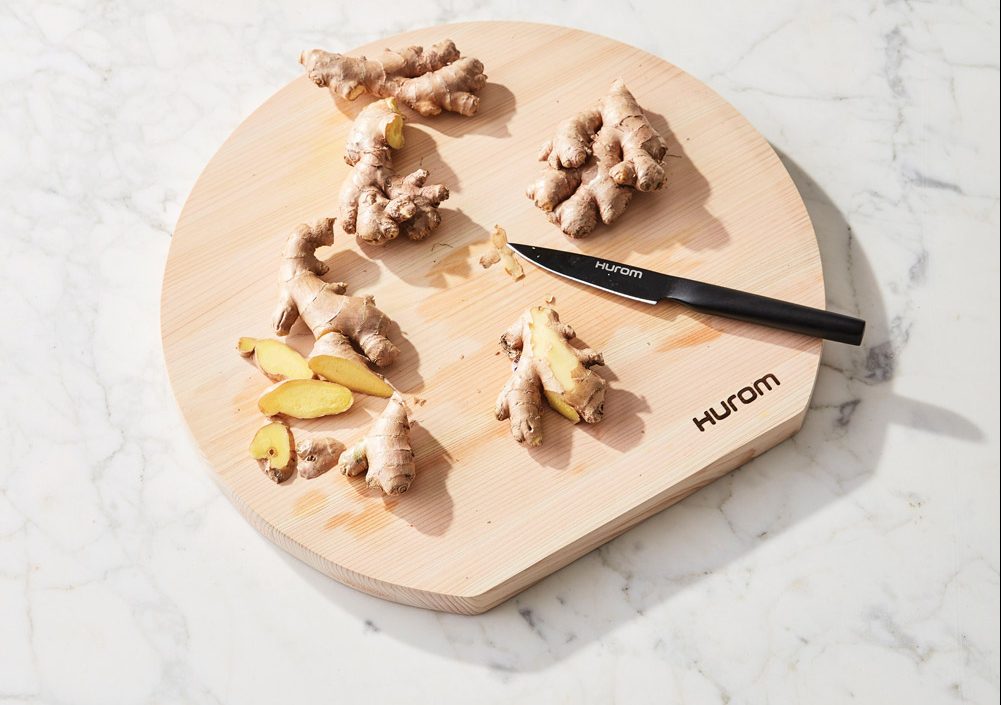
The Paring Knife is excellent for fine dicing ginger.
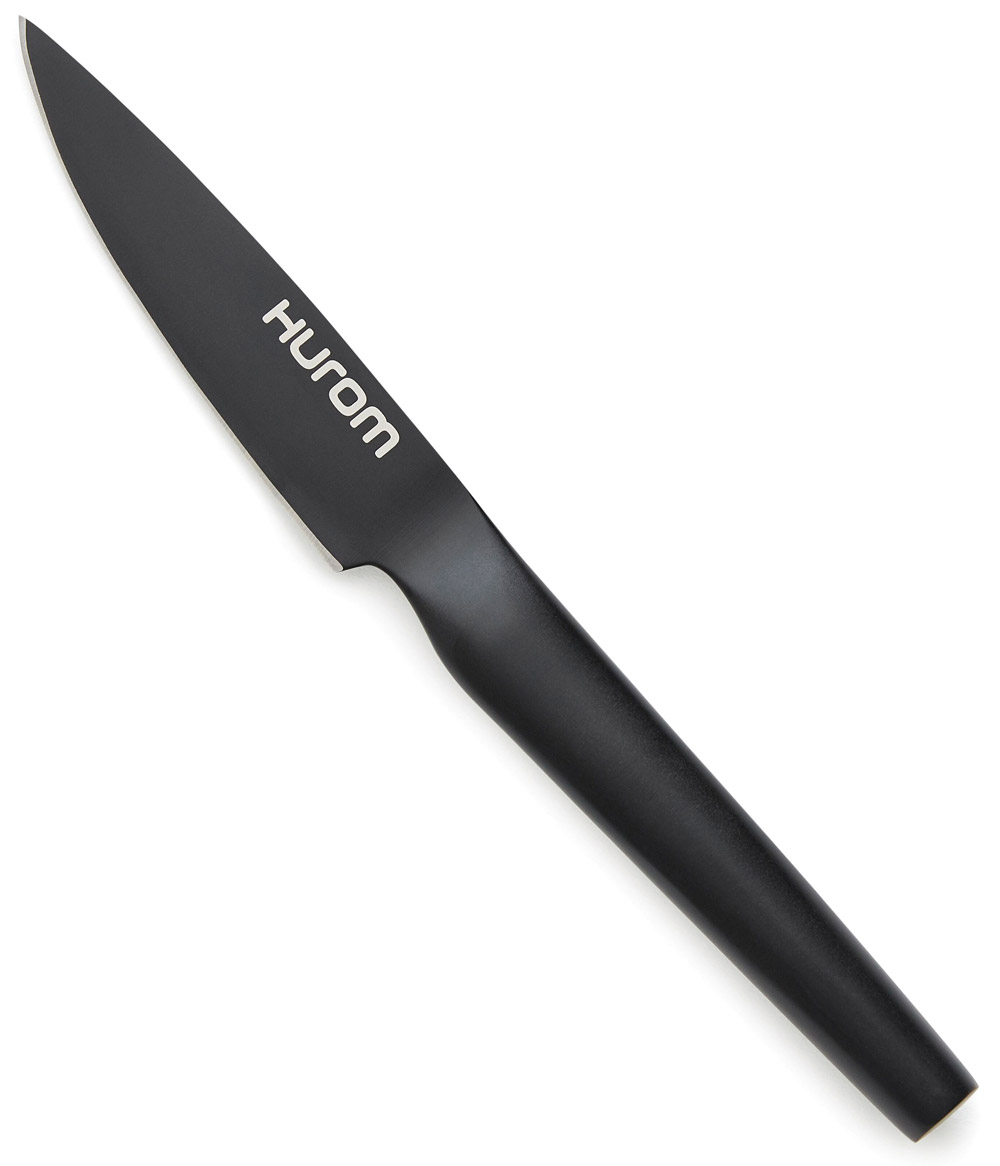
The Hurom 3.5-inch Paring Knife offers great control for smaller kitchen tasks.
They’re All About That Juice
Overall, I’d say that this set of knives is fairly decent. They look much more expensive than they are, they feel great and work well with the out-of-the-box edge. My wife is a vegetarian, while I am most decidedly not, so she cut up a lot more vegetables with these knives than I did. She liked them quite a bit. My son is a trained chef and gave them a “passing” grade.
They do have their downsides. The handles get slick when they’re wet, which is likely to happen when you’re cutting up a lot of fruit. Without handle scales, I wonder about heat transfer if you’re a moron like me and often set your kitchen utensils down next to an active burner on your stove top. The steel is also okay, but not fantastic for this price range.
As a first effort, I think these are a pretty good value. But Hurom is a juicer company, not a knife company (although they did partner with NY cutlery company Skandia for this effort). Summed up, let’s say this: If you get the Hurom Fruit & Vegetable Knife Set to just chop up stuff for a juicer, they’re probably fine; for heavier kitchen work, you’re better off investing in a more serious set of knives.
SPECS
- Models: Santoku, Citrus, and Paring Knives
- Blade Material: German Steel
- Blade Lengths: 7, 4 and 3.5 inches
- Overall Lengths: 13, 9 and 8 inches
- Blade Widths: 2, 1 and 1 inches at the tallest point
- Blade Thickness: 0.09, 0.07 and 0.07 inches
- Blade Finish: Non-stick finish (black matte)
- Handle Material: German Steel
- Weight: 6.6, 2.8 and 2.5 ounces
- MSRP: $99

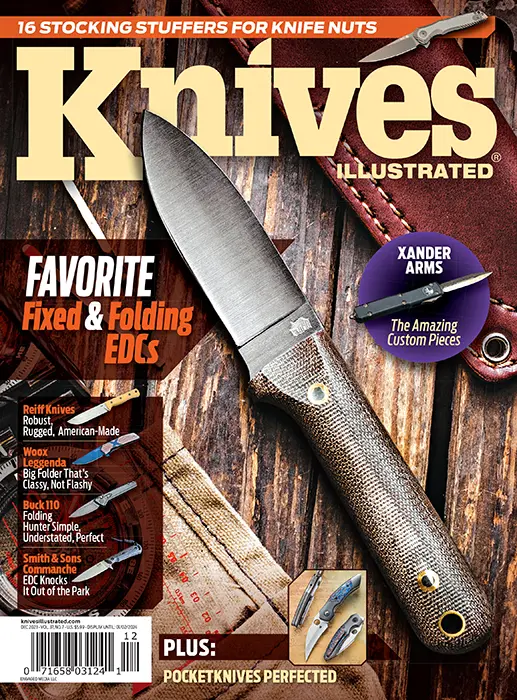 Subscribe / Back Issues
Subscribe / Back Issues